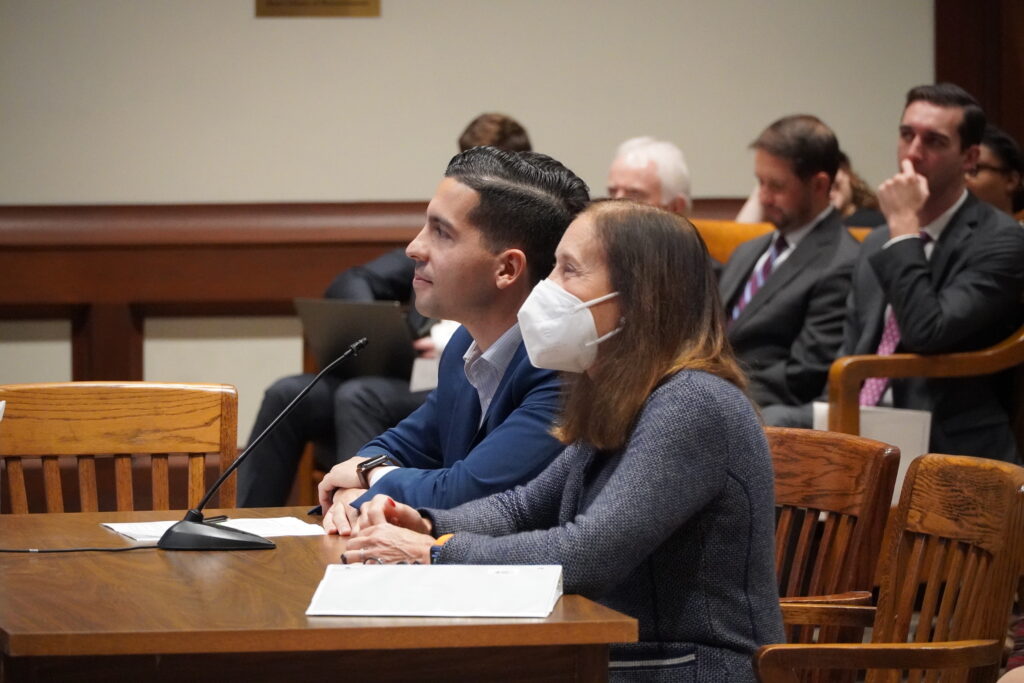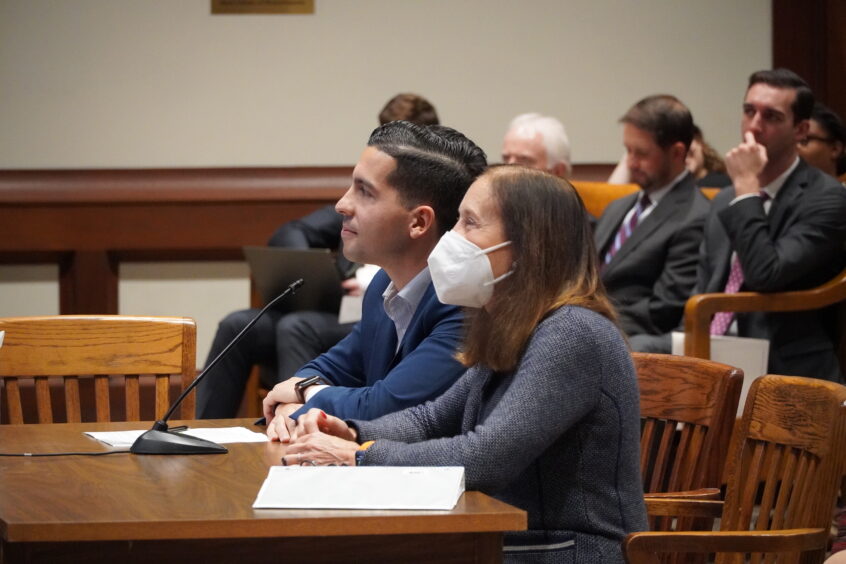By Amanda Brown and Daphna Gluck | December 6, 2023

Baby Bonds are an increasingly popular bipartisan government policy in which every child born into poverty receives a publicly funded trust account at birth, providing them with “start-up capital” to pursue fulfilling, productive, prosperous, and self-directed lives. Follow our Baby Blogs series to learn about the vision, politics, and people behind Baby Bonds and their transformative impact on the lives of young people, their families, communities, and our economy.
In this installment of Baby Bonds, Amanda Brown and Daphna Gluck of the Office of Economic Empowerment at the Massachusetts State Treasury share updates on Baby Bonds policy in Massachusetts and outline why robust parent and family engagement is essential to a successful Baby Bonds program.
In recent years, Baby Bonds have become a key part of the conversation around wealth-building and addressing the racial wealth gap in the United States. The essence of these programs is to address wealth inequality, and in particular racial wealth inequities, by providing young people with seed capital to start building wealth.
With the racial wealth gap three times larger than the racial income gap, wealth is a critical target for policies seeking to address racial inequalities. Simulations of Baby Bonds-like programs have shown that endowing young people with capital to acquire assets have the potential to reduce racial wealth inequalities.
In 2022, Massachusetts Treasurer Deborah Goldberg convened a task force to provide recommendations for a Baby Bonds program in Massachusetts. Following the release of the Task Force’s report in the fall of 2022, legislation has been filed in both the Massachusetts House of Representatives and the Senate to establish Baby Bonds to the Commonwealth.
As Massachusetts and other states consider Baby Bonds, policymakers must prioritize a robust program to engage and support participants and their families so that they are able to utilize their Baby Bonds endowment to its fullest potential.
Barriers to wealth can stem from multiple factors. The legacy of racism, historically denying people of color access to asset building opportunities, still poses significant barriers to wealth in areas such as real-estate, labor, and financial services. Circumstances connected to poverty can also create barriers to wealth creation. For example, people with low income have less access to quality elementary and secondary education, are more likely to face entry barriers to post-secondary education, and contend with complex factors that adversely impact college completion.
Integration of community engagement already exists in children’s savings accounts (CSA) programs* (both to enhance the programs and to increase awareness of the savings) and has been found to have benefits for children. Massachusetts’ own CSA program, the BabySteps Savings Plan, utilizes a network of community partnerships to increase access and engagement with BabySteps. When it comes to Baby Bonds, the large size of the investment makes it even more crucial to set program participants for success by making sure appropriate support is provided to them.
In its report, the Massachusetts Baby Bonds Task Force recognized that “targeted engagement” with participants alongside the monetary endowment is crucial to the program’s success. The report lists four goals for engagement:
- Inform families and participants of Baby Bonds.
- Encourage engagement with the Baby Bonds account by providing child SSN; updating contact details; and tracking the account growth.
- Build financial capability for families and participants based on their individual needs.
- Support the family during the Baby Bond eligible child’s developmental milestones.
The report also provides detailed guidelines on how to achieve these goals. Most notably, a successful program will utilize existing wraparound services around the Commonwealth and ensure that the Baby Bonds program administrator acts as a “convener and facilitator in creating a statewide network of support, consisting of new and existing partners and stakeholders, to provide resources, information, and opportunities for engagement with future Baby Bonds participants and their families.” To facilitate this work, the report recommended establishing a Community Advisory Committee comprised of stakeholders from geographically diverse regions of the Commonwealth (also reflected in article 79(d) to the proposed legislation).
Community engagement is complex; it is labor intensive, and it requires programs to build a broad coalition with existing initiatives, community-based organizations, and community leaders. There is no single blueprint for how to engage and support families. Each Baby Bonds program would have to thoughtfully and intentionally figure out how to connect with program participants. The work is hard, but the rewards are great—the opportunity for every child to fulfill their full potential.
Amanda Brown is a Program Associate with the Office of Economic Empowerment, Office of the Treasurer and Receiver General of Massachusetts.
Daphna Gluck is the Director of Program Evaluation at the Office of Economic Empowerment, Office of the Treasurer and Receiver General of Massachusetts.
*CSAs, also referred to as CDAs (child development accounts), are programs that focus on providing savings accounts for children’s futures, usually to fund post-secondary education, and tend to involve smaller deposits than are discussed in the Baby Bonds sphere.
If you missed previous installments of our Baby Blogs series, read them here.
To share feedback on this blog, or for questions about Baby Bonds, email David Radcliffe at [email protected].

